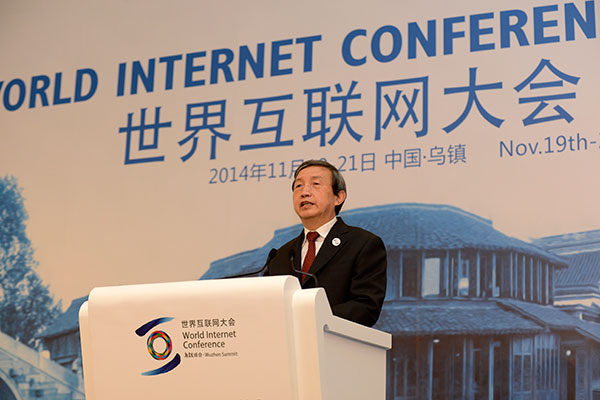
Today marks the third day of the first World Internet Conference held in Wuzhen, Zhejiang. This is the first global summit China has hosted to center upon Internet governance. One might say that the meeting’s commencement signifies the beginning of the end for the unipolar Internet age.
As the birthplace of the Internet, the U.S. has led innovation and entrepreneurship in the field over the past 45 years, as well as the rules and values behind Internet governance. It has especially stressed a spirit of the Internet that encompasses openness, sharing, freedom and equality, comprising the core of this new culture. But it can be a thin line between helping and harming. In the last decade, the U.S. government has emphasized that Internet governance should be free from the influence of any nation’s government, yet has moved with an invisible hand to seize control over the entire Internet, as well as attempting to monopolize any rule-setting authority. Of even greater concern is that the U.S. has sacrificed the security of other states in its pursuit of absolute security for itself, spurning a multi-party system comprised of more than 200 nations and regions in favor of one dominated by a single entity. The U.S. government’s abuse of this Internet superpower has now become one of the greatest problems in Internet governance.
In November, the number of Internet users around the world surpassed 3 billion, with two-thirds of those living in developing countries. Within that figure, the proportion of U.S. netizens fell to below 10 percent, while China’s share grew to more than 20 percent. Of the next 3 billion Internet users, 90 percent will come from developing countries. As the size of cyberspace begins to overtake that of the real world, the Internet has ushered humanity into a new age. It is a great leap forward in human culture, but at the same time presents new challenges in governance. Under these circumstances, the U.S. monopolizing the authority to regulate the Internet is inconsistent with this day and age.
The volume of Chinese Internet users is the highest in the world, but China will not seek to take the lead in setting regulations. China should band together all the nations in the world, including the U.S., dissolve the unipolar American order of the past, and create “an interconnected world shared and governed by all.” This is the theme of the summit, and the words are precisely the spirit of the Internet. Meanwhile, the location of the World Internet Conference being fixed permanently in Wuzhen holds another implication: The interests of over 200 nations and regions must be manifested within cyberspace, and what better springboard for that is there than the vast, accommodating, and peacefully individualistic Chinese culture?
The new culture brought on by developing the Internet represents a new age where cyberspace both leads and blends into the real world. The enormous complexity of Internet governance and pluralization of the parties involved dictate that only a more open, inclusive and diverse system will be effective.
Despite China’s magnanimous invitation, the U.S. government has still frowned upon the summit. Clearly, the U.S. is yet far from willing when it comes to sharing Internet leadership with the rest of the world. As a consequence, the path away from its unipolar hegemony of the Internet and toward shared governance will inevitably be arduous and difficult to navigate. The World Internet Conference is a very good attempt at this. Birthing a new age will require perseverance and untiring effort, and the unique significance and value of the Wuzhen summit will undoubtedly manifest itself in due time.
The author is founder of the Chinese Internet Lab.

Leave a Reply
You must be logged in to post a comment.